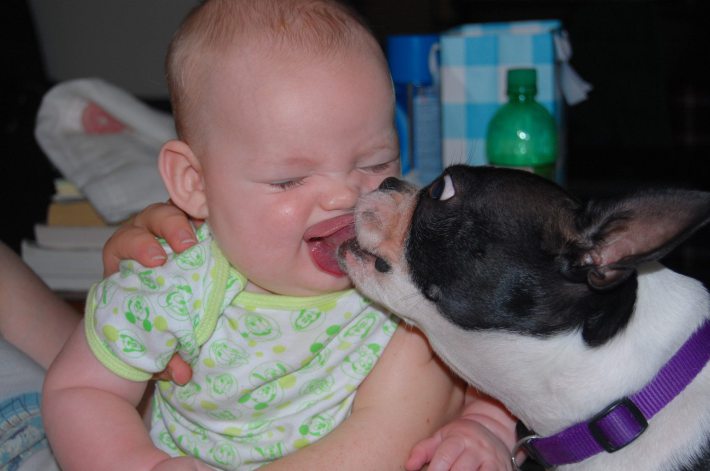HIV (human immunodeficiency virus) does not infect dogs. Regardless of how a dog is exposed, it will not develop an infection. HIV is also a very fragile virus. It does not survive long in the environment and a dog’s mouth is not a very hospitable location. It is theoretically possible that if a dog bit someone with HIV and then immediately bit someone else, it could transfer the virus, but this has not ever been identified and is very unlikely. In some countries, the source of all cases of HIV are investigated, and an animal bite has never been implicated as a potential cause.
What Kinds of Infections Could I Get from an Animal?
Animals can have cryptosporidiosis (“crypto”), toxoplasmosis (“toxo”), Mycobacterium avium complex (“MAC”), and other diseases.
These diseases can give you problems like severe diarrhea, brain infections, and skin lesions. You can learn more about many of these diseases and how to prevent them from other brochures in this series. These are listed at the end of this article.
What Can I Do to Protect Myself from Infections Spread by Animals?
- Always wash your hands well with soap and water after playing with or caring for animals. This is especially important before eating or handling food.
- Be careful about what your pet eats and drinks. Feed your pet only pet food or cook all meat thoroughly before giving it to your pet. Don’t give your pet raw or undercooked meat. Don’t let your pets drink from toilet bowls or get into garbage. Don’t let your pets hunt or eat another animal’s stool (droppings).

- Don’t handle animals that have diarrhea. If the pet’s diarrhea lasts for more than 1or 2 days, have a friend or relative who does not have HIV take your pet to your veterinarian. Ask the veterinarian to check the pet for infections that may be the cause of diarrhea.
- Don’t bring home an unhealthy pet. Don’t get a pet that is younger than 6 months old — especially if it has diarrhea. If you are getting a pet from a pet store, animal breeder, or animal shelter (pound), check the sanitary conditions and license ofthese sources. If you are not sure about the animal’s health, have it checked out by your veterinarian.
- Don’t touch stray animals because you could get scratched or bitten. Stray animals can carry many infections.
- Don’t ever touch the stool of any animal.
- Ask someone who is not infected with HIV and is not pregnant to change your cat’s litter box daily. If you must clean the box yourself, wear vinyl or household cleaning gloves and immediately wash your hands well with soap and water right after changing the litter.
- Have your cat’s nails clipped so it can’t scratch you. Discuss other ways to prevent scratching with your veterinarian. If you do get scratched or bitten, immediately wash the wounds well with soap and water.*
- Don’t let your pet lick your mouth or any open cuts or wounds you may have.

- Don’t kiss your pet.

- Keep fleas off your pet.
- Avoid reptiles such as snakes, lizards, and turtles. If you touch any reptile, immediately wash your hands well with soap and water.
- Wear vinyl or household cleaning gloves when you clean aquariums or animal cages and wash your hands well right after you finish.
- Avoid exotic pets such as monkeys, and ferrets, or wild animals such as raccoons, lions, bats, and skunks







